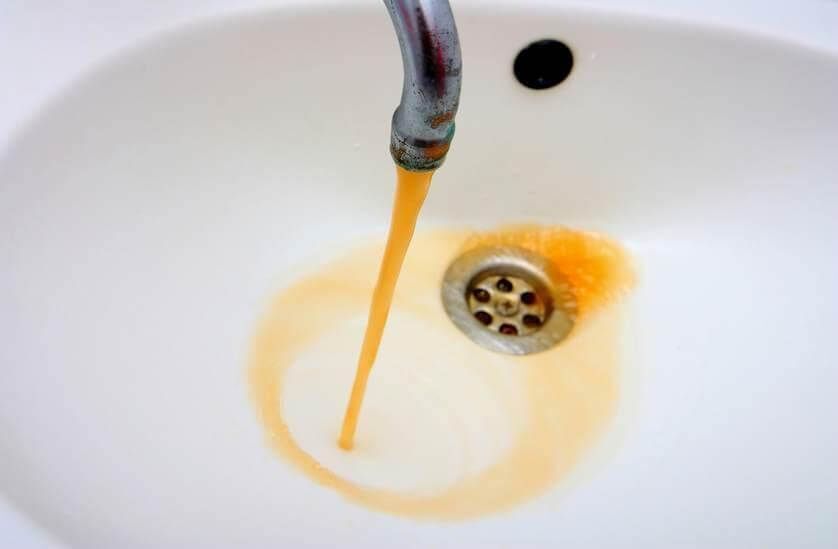Everyday, millions of people take clean water for granted. We don’t give a second thought to taking a long shower or cleaning our cars. We bathe our children in crystal clear water and cool off with the hose. We drink tall, cold glasses of water, one after another, without worry about where our next glass will come from.
We assume that our supply of water will never end, and we treat it in like manner. We know that water is a crucial part of our lives, and we know that we couldn’t survive without it, but we rarely think about those people who actually have to survive without clean water.
In the United States, we’ve gotten a tiny taste of the global water crisis through the events in Flint, Michigan. Suddenly, men, women, and children find themselves without a reliable, clean source of drinking water. And even worse, some children are already experiencing adverse effects from the water.
Of course, here in the United States, if our tap water goes bad we can always purchase bottles of water. In fact, companies like Culligan have built entire businesses around bottling and selling clean water.
Unfortunately, those in developing countries such as Afghanistan don’t have such luxuries. Every day, millions find themselves struggling simply to find clean water. Many are unable to and must resort to drinking filthy, parasite-laden water. Millions of people get sick and die as a result of drinking this water. These deaths are truly preventable simply by providing clean, sustainable sources of water.
As chef Marcus Samuelsson says:
Clean water and access to food are some of the simplest things that we can take for granted each and every day. In places like Africa, these can be some of the hardest resources to attain if you live in a rural area.
At Business Connect, we are passionate about providing citizens of developing countries with affordable access to clean water. We wholeheartedly agree with the World Health Organization:
In 2010, the UN General Assembly explicitly recognised the human right to water and sanitation. Everyone has the right to sufficient, continuous, safe, acceptable, physically accessible and affordable water for personal and domestic use.
There are few things more important to life than clean water, and clean water is a right for every person. But we find that most people have no idea of the extent or severity of the clean water crisis. It’s not that they don’t care; they simply don’t know.
In order to effectively fulfill our mission, we want to first help people understand exactly what is happening in the global water crisis and why it matters. It’s difficult for people to take action in solving the global water crisis when it seems so far away and so irrelevant to their daily lives.
With that in mind, we want to give you insight into some of the stark realities of the global water crisis.
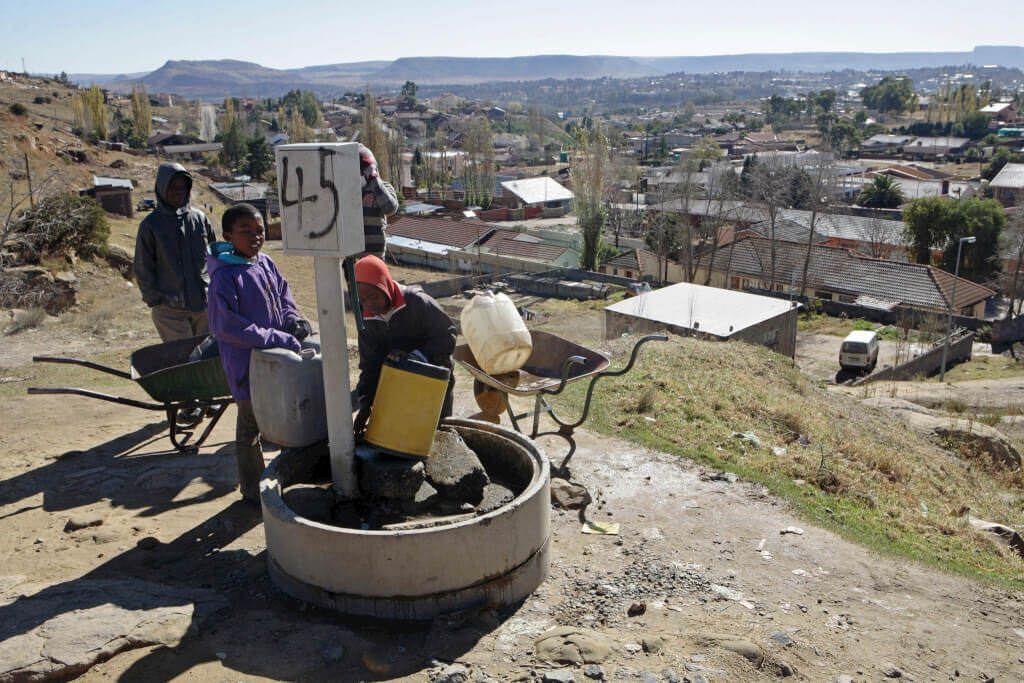
Stark Reality #1 – Every 90 Seconds A Child Dies From A Water-Related Disease
Consider this stunning fact for a moment. Every 90 seconds a child dies from a water-related disease that could have been prevented simply by providing access to clean water. Diarrhea, which is incredibly easy to prevent, is the third leading cause of death among children. 161 million children are afflicted with chronic malnutrition and stunted growth, most of which is tied to lack of clean water.
Consider how this would be handled in a country like the United States. If a child was dying every 90 seconds due to a single cause, there would be a massive outcry. The government would immediately step in and millions of people would rally together. This kind of massive tragedy simply wouldn’t be allowed to happen. People wouldn’t stand for it.
As Sanjay Wijesekera, global head of UNICEF’s water, sanitation and hygiene programme, says:
If 90 school buses filled with kindergartners were to crash every day, with no survivors, the world would take notice.
And yet the global water crisis is often overlooked by those in developing countries. Again, not because they don’t care, but because they’re not aware. They aren’t aware of the catastrophic harm the crisis causes children.
Children simply cannot protect themselves. They have no option other than to drink the parasite-laden water around them. If they don’t drink the water, they die from dehydration. If they do drink the water, they will most likely be afflicted with a disease.
Let’s work together to protect these children. Let’s respond to the global water crisis in the same way we would respond to a local water crisis.
As William Ashworth says:
Children of a culture born in a water-rich environment, we have never really learned how important water is to us. We understand it, but we do not respect it.
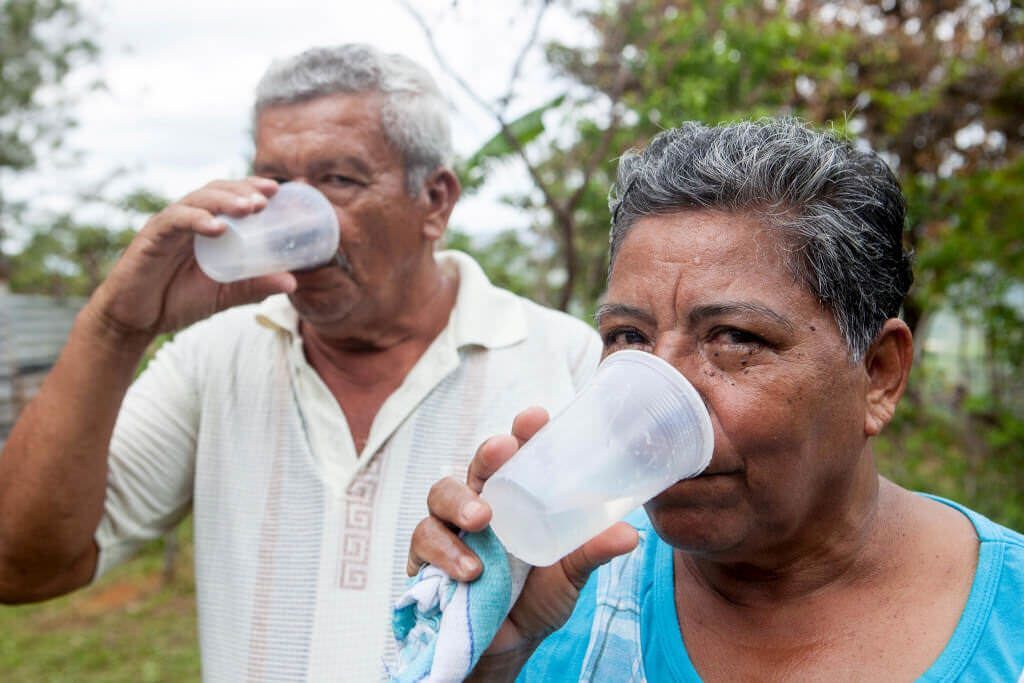
Stark Reality #2 – The Number Of People Without Clean Water Is Staggering
The number of people who don’t have access to clean water is absolutely stunning. Currently, 2.6 billion people, which is half the developing world, lack access to an improved latrine. 1.1 billion people lack access to an improved water source. Those of us in the developing world can feel like clean water is an issue that only hurts a small number of people. Unfortunately, this is simply not the case.
Consider these facts:
Every year 1.1 million people, primarily under the age of 5 are killed from diarrhoeal diseases directly attributable to unclean, unsafe water.
160 million people are afflicted by schistosomiasis and 500 million may be afflicted trachoma, which in turn puts 146 million people at risk for blindness.
133 million people are infected with intestinal helminths which can be traced directly to unclean drinking water.
Between 300 to 500 million people are hit with malaria, which is caused when mosquitos breed in unclean drinking water. Out of the millions infected, 1 million children die every year.
12 million people contract typhoid due to consuming unsafe drinking water.
Millions of people have AIDS, and clean water is essential to preventing infection and boosting the immune system.
The point is simply this: the global water crisis staggering. It is not a small problem affecting a few people.
Rachel Carson’s words are appropriate:
In an age when man has forgotten his origins and is blind even to his most essential needs for survival, water along with other resources has become the victim of his indifference.
Let’s combat our indifference. Let’s work together to shrink the number of people without access to clean water.
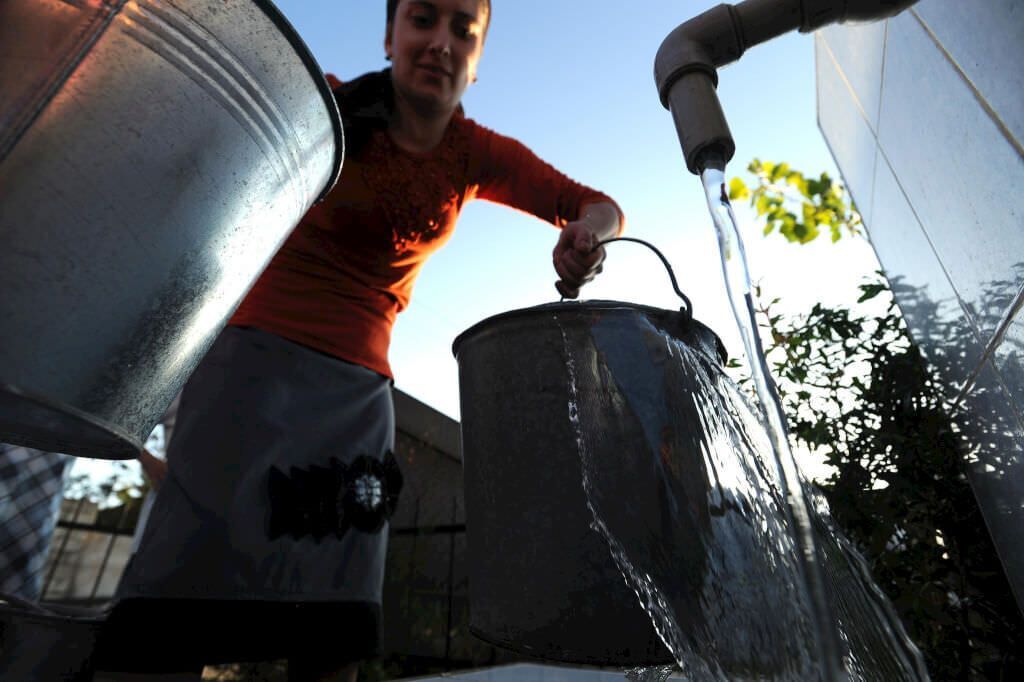
Stark Reality #3 – The United States Consumes An Astonishing Amount Of Water Compared To The Rest Of The World
The average American consumes around 2,000 gallons of water...per day! In addition to consuming water directly by drinking, showering, and washing, we consume water indirectly through the products we purchase.
On average, it takes...
634 gallons to produce a hamburger and 37 gallons to produce a single cup of coffee.
13 gallons to produce 1 gallon of gasoline and 5 gallons per hour to power a 60 watt light bulb.
2,900 gallons to create a pair of jeans and 700 gallons to make a cotton t-shirt.
The U.S. footprint for water consumption is two times greater than the global average. In other words, in the United States we are consuming about twice as much water as the rest of the world.
As professor Shahzeen Attari said in a recent study:
Most Americans assume that water supply is both reliable and plentiful. However, research has shown that with climate change water supply will become more variable due to salinization of groundwater and increased variability in precipitation.
The point of these statistics is not to make Americans feel guilty for the amount of water they consume. The statistics simply highlight how unaware most Americans are of the amount of water they consume compared to the rest of the world.
Singer/songwriter Jewel said:
Clean water is a necessity that we can no longer take for granted. Each year more people die of water related diseases than any other cause of death on this planet. With a higher rate of suffering and mortality than diabetes, cancer, high cholesterol, or war; or any two combined for that matter! An entire economy is growing around water.
Those without money are suffering the most and risk severe illness from contaminated sources.
Our average water consumption shows that, unfortunately, we do take clean water for granted. By giving greater thought and appreciation to clean water, we can help solve the global water crisis.
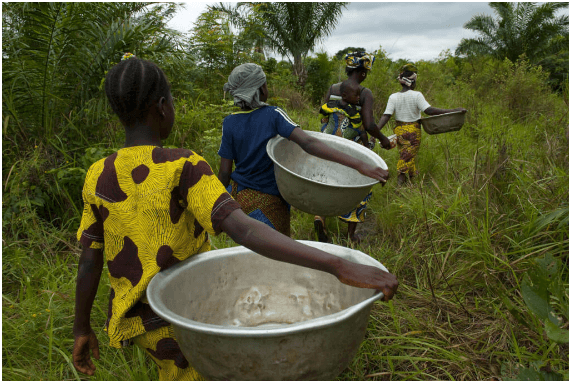
Stark Reality #4 – The Global Water Crisis Is A Women’s Rights Issue
The global water crisis hits women particularly hard. In many countries, women are responsible for collecting all the water for the family. Every day, they walk miles and carry massive burdens just to secure enough water for bathing, drinking, cleaning, and washing. As soon as girls are old enough, they must join in this effort if the family is to have enough water.
When women have access to clean water, the effects are immediate and significant.
Literacy rates climb and school attendance increases thanks to girls not having to spend their days collecting water.
Women have reduced physical injury due to not carrying excessive burdens.
Child and maternal mortality drops thanks to clean water during childbirth.
There is less risk of assault and rape since women aren’t forced to scavenge in dangerous areas.
In the United States, we’ve made great progress in women’s rights issues. Unfortunately, this isn’t the case in most developing countries where women must still spend hours every day collecting water. If we truly care about the rights of women around the world, we must work together to end the global water crisis.
Conclusion
The global water crisis is real and it isn’t a pretty picture. It affects billions of people, particularly women and children. And unfortunately, many of us in the United States are unaware of how much water we consume compared to the rest of the world.
But there is good news. We truly can make a difference. We can bring about change. Despite the enormity of the crisis, change is happening. At Business Connect, we are proud to be part of that change.
source: https://businessconnectworld.com/2016/09/08/4-stark-realities-global-water-crisis/

